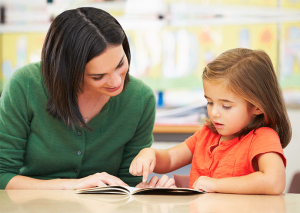Speech Pathology Week is here and director of PLD Literacy & Learning, Diana Rigg highlights the role of speech pathologists in schools in order to facilitate increased literacy outcomes.
PLD has regularly stressed the way forward for literacy education in primary school is for speech pathology to have a larger involvement within schools.

Researchers have continued to highlight the important relationship between the spoken and written language, as ‘inseparable friends’ in which they each benefit the other. Children are likely to be more successful with their literacy acquisition if they have adequate oral language skills in the first place. Then once reading students’ oral language skills continue to be strengthened from the reading of new words and the processing of new and complex sentences.
Unfortunately, the reverse is also true. Children with poor oral language skills then tend to struggle with their reading and writing skills. Many researchers refer to oral language delays as an early manifestation of a reading difficulty. This link between oral skills and literacy is not widely understood and isn’t reflected in schools.
As a Speech Pathologist and literacy expert, Diana continues to stress that speech pathologists in schools are essential potential contributors to school’s literacy programs and also the prevention of literacy difficulties. They are able to implement oral language programs and share their knowledge base and showing teachers how to strengthen language skills within the emerging literacy phase. literacy skills.
Speech and Language Pathologists (SLP’s) have expertise in the realm of oral language instruction to impart to teachers. In addition, SLP’s have an ever increasing role to play to assist teachers interpret the existing research basis of what consistories effective literacy instruction.
PLD Literacy & Learning want to celebrate and acknowledge the amazing work of speech pathologists during Speech Pathology Week and look at ways for schools to utilise them to ensure the future of children’s literacy is protected.



 print
print